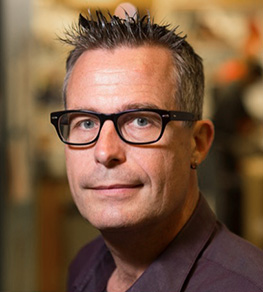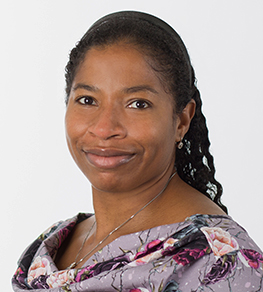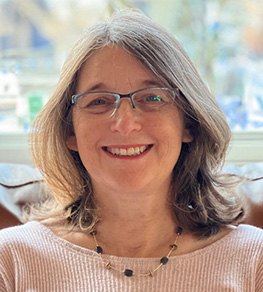Keynote Speakers
-

Boris Striepen, PhD
University of Pennsylvania
Boris grew up in Ruhrort where the German rivers Rhine and Ruhr meet, an industrial area then dominated by coal and steel. He studied biology at the universities of Bonn and Marburg and conducted undergrad research on liver flukes in Bonn, and Nagana in Bobo Dioulasso, Burkina Faso. Boris earned a PhD summa cum laude for work on parasite biochemistry with Ralph Schwarz, was a postdoc with David Roos studying parasite cell biology, prior to starting his laboratory at the Center for Tropical & Emerging Global Diseases at the University of Georgia in 2000, where he last was a Distinguished Research Professor. In 2017 he joined the faculty of the University of Pennsylvania. Boris studies the cell and molecular biology of apicomplexan parasites. His current research focus is the parasite Cryptosporidium, a leading global cause of diarrhea and mortality in young children. His lab pioneered molecular genetics for this important infection and leads a range of interdisciplinary efforts to understand fundamental parasite biology and to advance translation towards drugs and vaccines. Boris is also engaged in education and training. He taught undergraduate and graduate classes, directed NIH training grant programs in parasitology, and served as faculty and director of the Biology of Parasitism summer research course at the Marine Biology Laboratories in Woods Hole, MA. Boris is married to a social worker with remarkable patience for scientists and has three children, two are scientists – all are awesome.
-

Keke Fairfax
University of Utah
Keke Fairfax received her PhD from Yale in Microbial Pathogenesis in 2009. Her dissertation work focused on identifying novel fatty acid binding proteins in the human hookworm Ancylostoma ceylanicum. She completed her post-doctoral training in Schistosoma mansoni immuno-parasitology with Edward Pearce and Gwendalyn Randolph in 2014. Dr. Fairfax began her independent laboratory at Purdue University in 2014 and moved to the University of Utah in 2018. The Fairfax laboratory at the University of Utah broadly focuses on using the helminth parasite Schistosoma mansoni as a tool to understand both, the relative contributions of schistosome antigen vs host IL-4 in inducing host immuno-modulation, and the complex interplay between lymphoid and stromal cells necessary to develop an optimal T and B cell memory response. Under this umbrella we currently have three main projects: 1) Understanding the immunological implications of maternal infections; 2) Dissecting the role of IL-4 in shaping the cellular environment of peripheral lymph nodes during homeostasis and antigenic challenge; 3) Delineating the mechanistic role of antigen driven immunological progenitor re-programing in helminth-induced protection from metabolic diseases.
-

Tania Watts, PhD
University of Toronto
Dr. Tania Watts received her Ph.D. in Biochemistry at the University of Alberta, followed by post-doctoral studies in Chemistry at Stanford University, where she developed an interest in Immunology. Dr. Watts joined the University of Toronto as an Assistant Professor in Immunology in 1986 and rose through the ranks to Full professor in 1997. Dr. Watts has had a long-term interest in immunity to viruses, focusing on how T lymphocytes respond and are regulated during acute and chronic infections, including responses to SARS-CoV-2 infection or vaccination. Dr. Watts’ research focus for many years has been on regulation of T cell responses by TNFR superfamily members such as 4-1BB and GITR. We study TNFR signaling in T cells as well as cancers of the immune system. Dr. Watts is a former President of the Canadian Society for Immunology, Director of the Faculty of Medicine Flow Cytometry facility at the University of Toronto and was recently named a Distinguished fellow of the American Association of Immunologists, class of 2022. Her graduate mentorship was recognized by the 2019 JJ Berry-Smith award at the University of Toronto. Dr. Watts’ research is funded by the Canadian Institutes for Health Research and by the Canadian Cancer Society.